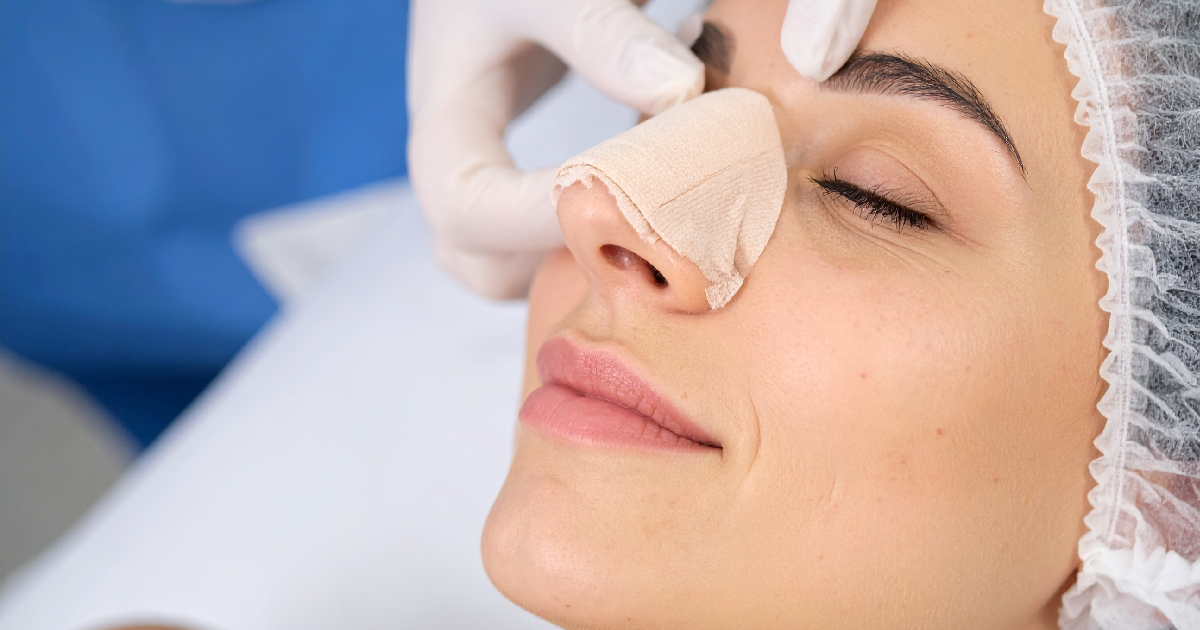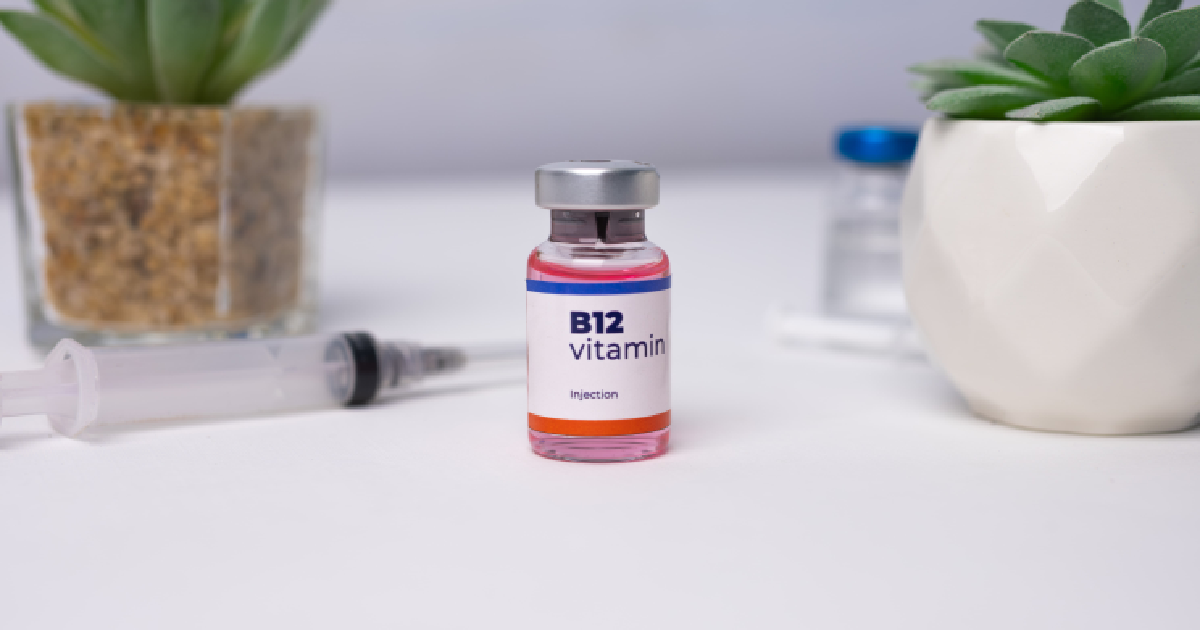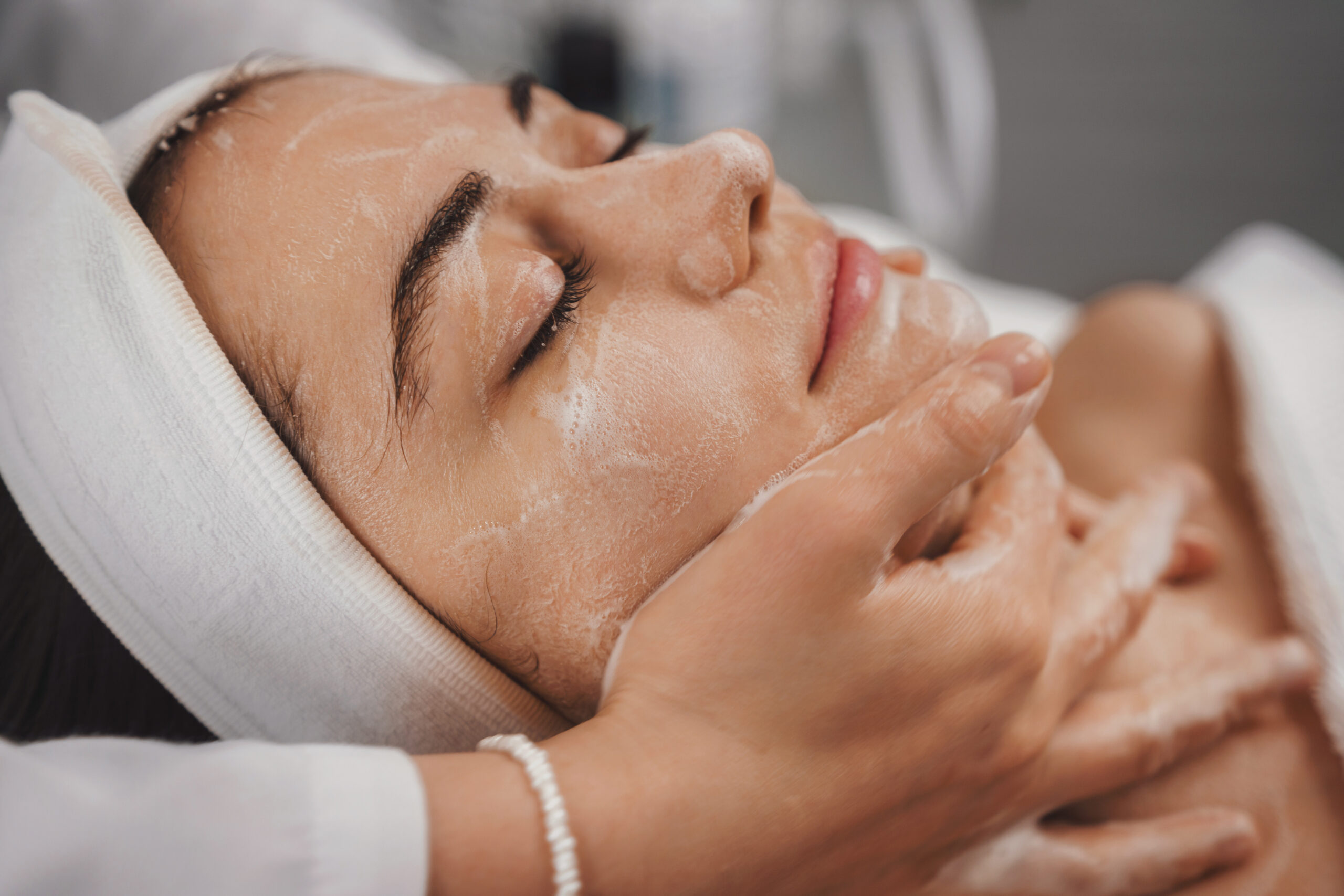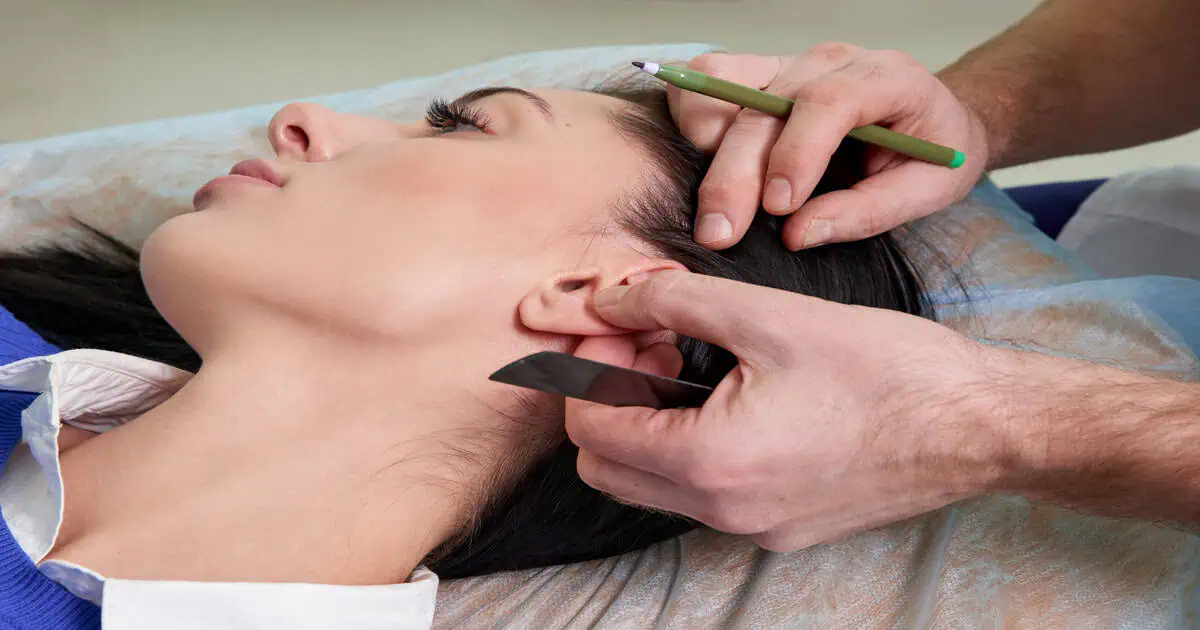We all know that there is such a thing as “too much of a good thing.” While sunlight is oh-so-important for our health, too much sunlight can actually be detrimental to our health. In the short term, too much sunlight can cause freckling and moderate-to-severe, often painful, sunburns. In the long term, too much sunlight can cause early signs of aging, manifesting in wrinkles and leathery skin, and possibly that dreaded c-word… cancer.
In our practice, we have also found that few patients know about the effects of sunlight on acne and acne scars. Most believe that sunlight can heal or cure acne. In fact, the opposite is true! Unfiltered, the sun’s UV rays can cause free radical damage and inflammation, harming skin already inflamed by acne. Those same UV rays can also destroy collagen and elastin, the building blocks of healthy, beautiful skin. Sunlight may also damage the skin’s natural moisture barrier, resulting in moisture loss. This leads your skin to produce more oil to compensate for that moisture loss, and more oil on acne prone skin is never a good idea. Lastly, excessive sun exposure can cause hyperpigmentation in the skin, which may darken pre-existing acne scars and cause blotchiness in other areas.
Those detrimental effects of too much sunlight are frequently preventable!
You’ve heard it before: wear sunscreen! Make sure it has a high SPF factor! Reapply after a couple of hours! But do you know why?
Why do I need to use sunscreen?
Sunlight consists of ultraviolet (UV) rays, unimaginatively named UVA, UVB, and UVC rays:
- UVA rays are the primary causes of premature aging, contribute to skin cancer, and are present throughout the day;
- UVB rays are the primary causes of sunburns and the development of skin cancer, and are present during peak sunlight hours of 10:00 am to 4:00 pm;
- UVC rays do not reach the earth’s surface as they are filtered by the ozone layer surrounding Earth.
Sunscreen, when properly selected and applied, can effectively filter most UVA and UVB rays and prevent signs of aging, sunburns, and most skin cancers.
What ingredients should I look for in a sunscreen?
The most important thing to look for in a sunscreen is its ability to filter both UVB and UVA rays. The second consideration will be the Sun Protection Factor, or SPF. The higher the number, the better the protection, so one should select a sunscreen with at least SPF 15. This will filter out 93% of those damaging UVB rays. If you plan to sweat or swim while wearing it, select a waterproof sunscreen. If you have sensitive skin, try to find a sunscreen that does not contain para-aminobenzoic acid (PABA), to ensure you don’t have a reaction.
Sunscreen creates either a chemical barrier or a physical barrier to prevent the harmful UV rays from getting through to your skin. A chemical barrier can be created using sunscreen containing one or more of the following ingredients in order to maximize your sunscreen’s effectiveness: ecamsule, avobenzone, oxybenzone, titanium dioxide, and/or sulisobenzone. A sunscreen that creates a physical barrier may have a greater degree of effectiveness; in this case, choose a sunscreen that contains zinc oxide. For those who suffer from acne-prone skin, zinc oxide not only provides protection from the sun’s UV rays, it also is known to be a powerful acne fighter, clearing the skin in the same way as benzoyl peroxide.
How often do I need to reapply sunscreen?
Sunscreen should be applied 30 minutes before sun exposure. The active chemical ingredients in a chemical barrier sunscreen will biodegrade over time, decreasing their effectiveness and making it necessary to reapply sunscreen every few hours throughout the day.
What are my alternatives if I don’t want to use sunscreen?
There are only a couple of ways to escape the damaging effects of overexposure to the sun. You may choose to limit your exposure to sunlight by remaining indoors, or you may choose to minimize outdoor time. For those of us who love the outdoors, or even driving during daylight, staying indoors just isn’t an option. The only other way to avoid sun damage to your skin without using sunscreen is to wear light-colored clothing that covers your skin.
Do you carry a good sunscreen?
As a matter of fact, we do! Our OBAGI skin care line includes several sun protection products specially formulated for your skin type. Click here for all of our sunscreen options (always 15% off online!). We also carry tinted moisturizers by Revision Skincare that provide UV protection with an SPF of 45: Intellishade Original and Intellishade Matte.
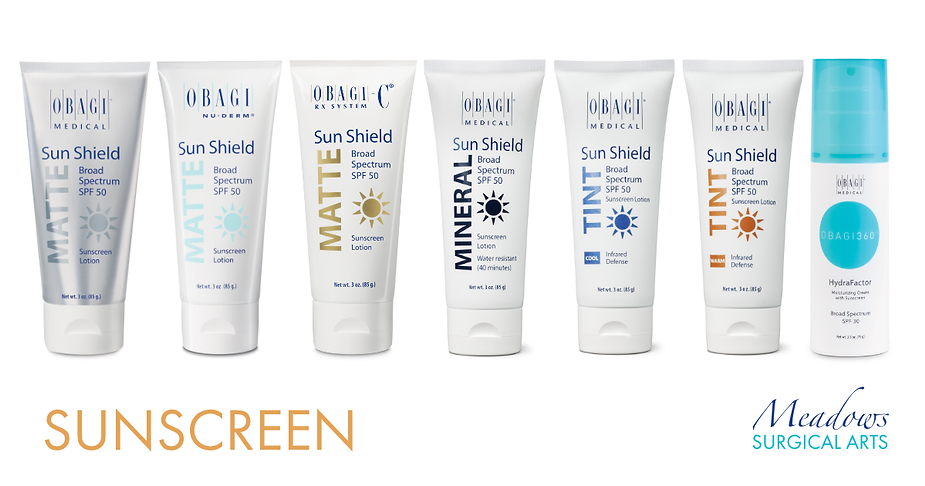
Don’t wait! The sun’s damaging UV rays are ever present, and you need protection now. The damage doesn’t start when you’re older, it starts regardless of age, whenever you’re exposed to UV rays. By protecting your skin, you will benefit from a younger-looking complexion and hopefully avoid any development of skin cancer.
If you would like to discuss sunscreen, anti-aging tips, or skin cancer, please call one of our offices to schedule a consultation at (706) 335-3555 (Commerce) or (678) 541-0339 (Buford).
Stay informed, stay connected:
- Looking for our monthly specials? Check them out here!
- Ready to purchase your surgical procedure or non-surgical treatment, or skincare/makeup products? Check out our online store!
- Want to be part of the Meadows Surgical Arts community? Like our Facebook page, and check out our Instagram feed!

